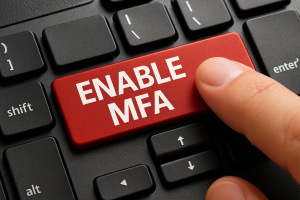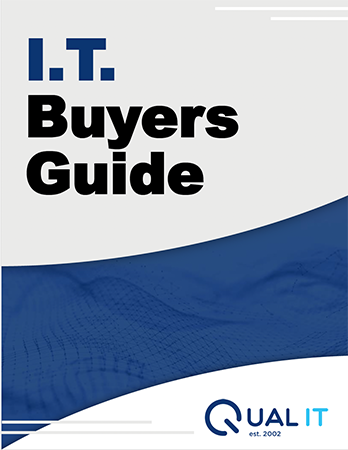 You wouldn’t run a policy without underwriting. You wouldn’t submit sensitive client data without encryption. So why are some Salt Lake City insurance agencies still going online without multifactor authentication (MFA)?
You wouldn’t run a policy without underwriting. You wouldn’t submit sensitive client data without encryption. So why are some Salt Lake City insurance agencies still going online without multifactor authentication (MFA)?
MFA is the seatbelt of cybersecurity. It doesn’t replace your password—it backs it up. This simple layer of IT security protection could be the one thing that stands between your agency and a data breach that compromises client records, your AMS, or your entire book of business.
One Click Could Be the Difference Between Protected and Exposed
If your password is the locked front door, MFA is your agency's alarm system. It gives your systems a critical second line of defense. Because let’s be honest: passwords alone don’t cut it anymore.
With MFA, even if a cybercriminal gets ahold of your password through phishing or dark web leaks, they’re still locked out unless they have access to your second form of authentication. That could be:
- A one-time text code
- A prompt from an authenticator app
- A biometric scan
- A push notification on your phone
These aren’t IT gimmicks. They’re insurance policies for your digital world. And as a licensed insurance advisor, you know the value of layered protection.
Real Scenarios Where MFA Stops a Breach in Its Tracks
Hackers are getting smarter. They’re impersonating clients, sending phishing emails that look like legit renewal notices, and even spoofing carriers. If one of your CSRs clicks a bad link and hands over credentials, MFA steps in and says: Not so fast.
In most cases, the attacker hits a wall—they don’t have your device, they can’t receive the MFA code, and you get notified of the attempt. That moment of warning is all you need to reset your credentials and block access.
According to Microsoft, enabling MFA reduces the risk of account compromise by over 99.2%. That’s not a minor boost—that’s a game-changer.
Where Salt Lake City Insurance Agencies Should Be Using MFA
Think about where you store client data, policy details, and compliance records. MFA should be active anywhere sensitive data is accessed:
- AMS and CRM logins
- Email accounts (especially Outlook, Gmail, or hosted Exchange)
- Cloud document storage (Google Drive, OneDrive, Dropbox)
- Banking or billing platforms
- Any remote desktop or VPN access
The good news? Most platforms already support MFA. You just need to turn it on, train your team, and make it standard operating procedure across your agency.
As your IT provider, Qual IT helps Salt Lake City insurance firms implement MFA with minimal disruption. We handle setup, onboarding, and compliance checks so your staff stays secure and productive.
Don’t Wait for a Breach to Take This Seriously
MFA isn’t just a good idea—it’s a no-brainer. It costs nothing, takes minutes to activate, and could prevent years of damage from a single compromised account.
At Qual IT, we specialize in IT services for Salt Lake City insurance agencies. If your systems aren’t protected with MFA, let’s fix that today.
Click here to schedule your free network assessment.
Because protecting your clients starts with protecting your login.



